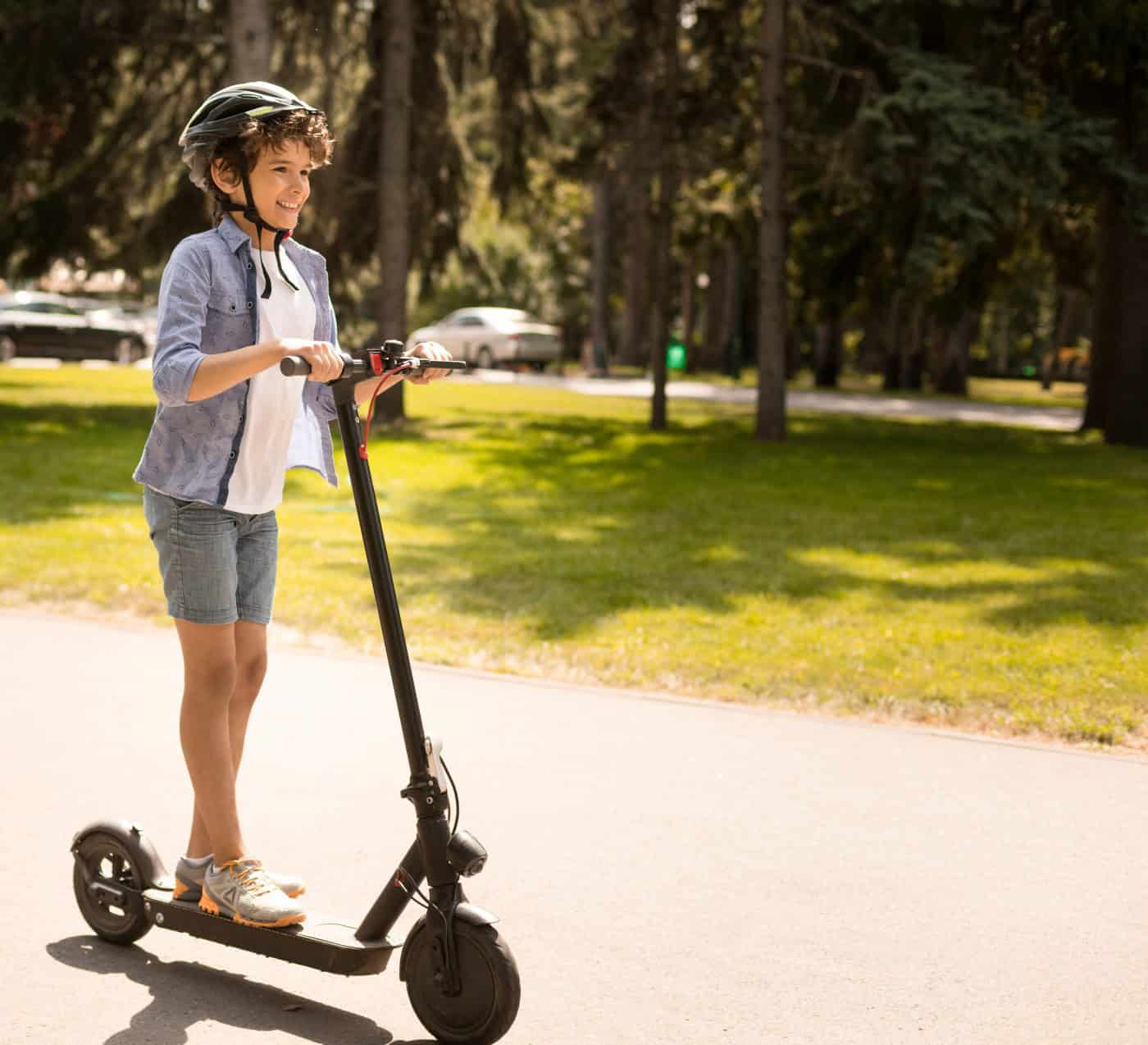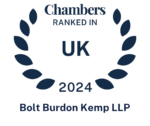
E-scooters for children – a brain injury waiting to happen?
The popularity of electric scooters, otherwise known as e-scooters, has soared in the last couple of years. E-scooters are seen as an efficient, eco- friendly and inexpensive way to travel. Worryingly, the rise in usage has also seen a rise in injuries and fatalities caused by e-scooters, with many of the incidents involving children.
What is an e-scooter?
An e-scooter looks similar to a standard two-wheeled scooter however, it is propelled by a motor. They are currently recognised as ‘’powered transporters’’ and covered by all the same laws and regulations as motor vehicles. My colleague, Ben Pepper, discusses the legal aspects of e-scooters further in his blog which can be found here.
The COVID-19 pandemic, and the need to social distance while travelling, saw the government trials for e-scooters brought forward. The trials beginning in 2020 made travelling via a rented e-scooter under the government scheme legal on public roads. The speed limit for rented e-scooters is 12.5 mph however, privately rented vehicles are reported to reach 52mph.
What are the dangers to children?
There is no shortage of articles online with images of e-scooters being used in a dangerous manner, from skipping red lights, driving on pavements and navigating main roads without helmets. Worryingly, the popularity of privately owned e-scooters being used illegally on public roads has also soared. It appears many of the users are children who are unaware of the potential dangers to themselves and others
Last month, a three year old girl was left with life changing injuries after being struck by an e-scooter being driven in a park in Lambeth. This led to the charity National Federation of the Blind UK calling for the sale of e-scooters to be banned from shops, citing the 11 serious injuries and fatalities caused by e-scooters in 2021 alone. Sadly, in the same month, a 16 year old boy was killed while driving an e-scooter in Bromley. The emerging reports of injuries and fatalities is echoed across the globe. US physicians analysing data from emergency departments found that head and neck injuries made up 28% of all admissions from e-scooter related incidents. Out of the head and neck injuries, the most common type of injury was internal organs including brain injuries, accounting for 32.5%.
Currently, there is no legal requirement for e-scooter users to wear helmets. With many children believing e-scooters are no more dangerous than their normal scooter, they are failing to recognise the importance of wearing a helmet. The lack of head protection from a helmet could have disastrous consequences in the event of an accident with the potential for a brain injury increased. The low compliance in wearing helmets among children riding e-scooters may be due to the fact that there is also no legal requirement for children to wear helmets while cycling on their bicycles so many are not in the habit of wearing a helmet. The debate on helmet wearing in cycling is a hot topic, with numerous arguments for and against.
Arguments for the use of helmets include the following:
- Evidence shows that helmets have been effective in reducing potential injury to a young cyclist’s head/ brain in the event of a fall or impact with an object
- Brain injury is devastating and we believe is not worth leaving to chance- say the Bicycle Helmet Initiation Trust
What are the effects of a brain injury on children?
As a member of the Child Brain Injury Team, I have seen first-hand the life-changing impact that brain injuries can have on the injured child. We are currently representing a child who suffered a brain injury after she was hit by a car while riding her e-scooter on the pavement without a helmet.
A minor head injury can cause the brain to be temporarily impaired leading to headaches, nausea and memory problems, to name a few. While most people are symptom free within weeks, a more serious brain injury can completely turn families lives upside down.
A traumatic brain injury can cause significant personality changes in the injured child, affecting their relationships with their parents, siblings and friends. Sadly, in some cases, the child’s ability to live an independent life is taken away from them. Some of the symptoms that we see in our clients include:
- Behavioural and personality changes
- Poor memory, attention and concentration
- Impaired judgement
- Communication problems
- Sensory problems
How to keep safe and what to do if you are involved in a collision?
Headway is a UK-wide charity working to improve life after brain injury. In a call for evidence on legalising rental e-scooter trials in 2020, they urged the government to implement the following recommendations to ensure the safety of road users and pedestrians:
- Riders should be encouraged to wear helmets;
- The speed of e-scooters should be restricted by a speed limiting device;
- Noise emitters should be used
These recommendations highlight some of the main concerns and can also be used as guidance for privately owned e-scooter users.
It is important to understand that e-scooters are not toys and should not be treated as such. Children should not be riding e-scooters on pavements or roads. If a child is using an e-scooter on private land then they should be wearing a helmet, keeping to a sensible speed and ideally be supervised by an adult. For more information, the following websites contain information and guidance for e-scooter users:
If you, or someone you know has been involved in an e-scooter related accident it is important to seek specialist legal advice. At Bolt Burdon Kemp, we have already seen an increase in e-scooter related enquiries.
For more information on what to do if you are injured by an e-scooter and your options for compensation, my colleague, Joshua Hughes, has written a helpful blog on this topic which can be found here.
The following charities are also dedicated to providing support to those suffering from a brain injury:






